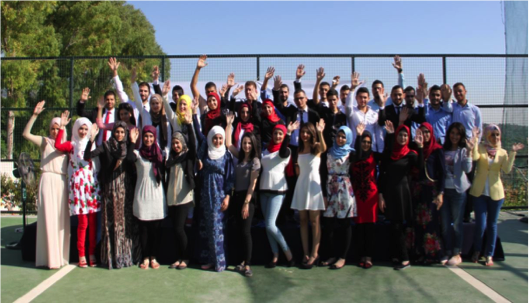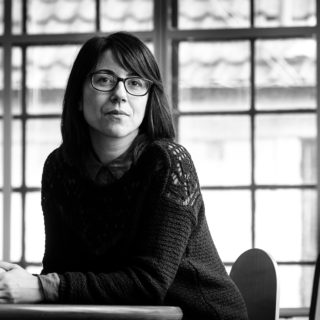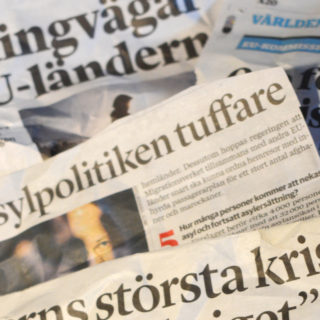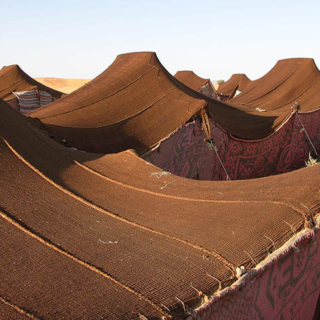Education is the ticket to freedom for stateless Palestinians
There is an ongoing systematic discrimination against stateless Palestinian refugees in Lebanon – a discrimination that has shaped generations. Without the right to own land, the opportunity for good education, and the right to obtain an ID or passport, hundreds of thousands find themselves in limbo, living in permanent rundown refugee camps.As a light in the darkness there is ULYP – Unite Lebanon Youth Project – a non-profit organisation that focuses on children.
Researcher Torsten Janson at the Centre for Middle Eastern Studies has been actively involved in youth and culture issues for a long time.
“I met with the founder of ULYP, Melek El Nimer, in 2012 and was taken by her and her colleagues’ outstanding commitment. When her father-in-law passed away, he left her a large estate in the mountains – a place that Melek El Nimer has since rebuilt into a recreational and educational facility for children and young people. The basic idea is to enable children from different backgrounds to meet”, says Torsten Janson.
MOST PEOPLE WHO ARE STUCK IN REFUGEE CAMPS in Beirut live in a socially substandard environment of poverty and outright dangerous housing. These concrete cities are now a standing feature of the cityscape. Luxury and poverty are squeezed into the same block. Beirut’s refugee camp flows freely into the city. The first wave of refugees came in 1948, with 100,000 Palestinians. Today, the figure is said to be approximately 400,000. Lebanon is also one of the countries that receives the highest number of refugees from Syria, and today nearly 1.5 million refugees live here – in a country with approximately 4.5 million citizens.
“The conditions in the camps are so damn miserable, and the prospect of a decent future is so poor that ULYP has concentrated its efforts on creating ways to escape from the misery”, says Torsten Janson.
The idea behind ULYP’s activities is for children with different conditions to come together in artistic projects or different types of athletic activities. These meetings set processes in motion among all those involved.
“In the short term, it creates a breathing space for the children, and in the longer term ULYP hopes to arouse public opinion and affect the entire education system in Lebanon. For 50–60 years, non-profit organisations have been working in the camps, but not much has changed. The children are stuck and permanently excluded”, maintains Torsten Janson.
One of ULYP’s most significant efforts is its investments in providing education for young Palestinians. Today, the schools available to stateless Palestinians are not as good as the ones offered to the Lebanese, and the path to a good university is more or less closed. ULYP has persuaded the best universities in the country to reduce their fees to half the amount for Palestinian refugees, and has also been successful in its fundraising activities. Previously, these universities didn’t have any students with a history of living in a refugee camp. Today, several hundred of them have been given this opportunity. However, even though they perform well and earn a degree, they later face unemployment because of the systematic discrimination. The only way out may be to leave the country.
Where does your research come in?
“I am currently following a number of young students and their experience of the university through in-depth interviews. What is it like being a Palestinian student in these cosmopolitan environments? How do you relate to your Palestinian identity on campus, and how do you bring your academic identity with you when returning to the refugee camp on the weekends? How does it feel to be the only one in the family to receive this crucial opportunity? These are the types of questions that interest me”, says Torsten Janson.
A deeper collaboration between the Centre for Middle Eastern Studies and ULYP helps the organisation analyse its efforts and better understand its activities. Young Palestinians also have the opportunity to study in Lund.
“If we can give young people hope for the future, and show them ways out of exclusion, this will help motivate both schools and students”, says Torsten Janson.
“The Palestinian cultural affiliation in Lebanon is stigmatised”
The Palestinian cultural affiliation in Lebanon is stigmatised. After 15 years of civil war between 1975 and 1990, Palestinians are marked by the strong negative image that the Lebanese have of them. Many blame the war on the Palestinians. Meanwhile, according to Torsten Janson, Palestinians associate themselves with pride, loyalty to their own, and a strong sense of ability to endure hardship.
ULYP’s work focusing on children and young people has received an increasing amount of attention. Its long-term approach is appreciated by UN organisations and other relevant institutions. At the same time, ULYP puts a finger on a sore spot, exposing the apartheid-like conditions that stateless Palestinians are subjected to.
Why do the Lebanese accept this segregated society?
Torsten Jansson points to the fact that the Lebanese Constitution divides political representation on the basis of religious affiliation. This creates divisions and factional interests. But not everyone is happy about it.
“I believe it is much of a generation issue. People are incredibly frustrated about the present incompetence and corruption, as we have seen in Egypt, Tunisia, Iran. The educated youth of today is disillusioned by the older generation’s inability to deal with political problems. Herein lies an opportunity for change”, says Torsten Janson.
LEBANON CONTINUES TO RECEIVE A LARGE AMOUNT OF REFUGEES, and the country is coloured by broken human beings trying to get a roof over their heads and food on the table. In Lebanon alone, there are 400,000 Syrian children of school age. In comparison, the entire Lebanese school system comprises about 300,000 pupils. Less than a quarter of Syrian refugee children today have access to education.
Torsten Janson finds that the only solution to this enormous problem is an awaited peace in Syria. However, an end to the war will not automatically solve the problems:
“We have a tendency to lose our perspective on the refugee issue as soon as peace has been achieved. But peace is only a necessary step on the way, after which communities must be repaired and people must heal. It will require massive, international efforts for a long time to come. And from the perspective of the children, education is the key.”
Text: Bodil Malmström

ULYP class of 2015: capable students who graduated from universities on scholarships facilitated by ULYP.





